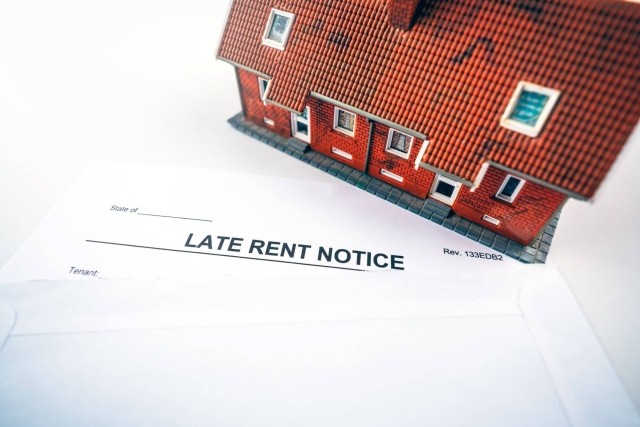Ideally, you’ll always find great tenants and they’ll rent happily from you for many years. When issues do come up between you and your renter, the situation can often be resolved with a conversation. But every now and then things go awry and you find yourself facing small claims court, either suing or being sued. In this case, what can you expect? Trying to navigate the process can be tricky, so here’s what to do if you find yourself in this situation.
Before Filing a Lawsuit in Small Claims Court
First, lawsuits are expensive — even small claims lawsuits. You’ll have to pay a filing fee and service fees, which can range from as little as $25 to $200 or more, depending on your state. Then, there’s the time you’ll spend gathering receipts, photos, and any other evidence you’ll need to back up your claim, plus at least a full day spent at court. This could mean taking time off from work, not to mention the strain from being in a stressful situation.
Try to resolve the issue with your tenant before it reaches the point of small claims court. Most cases — nearly 92 percent of them — get resolved before the court date. Small claims courts across the country are overburdened, resulting in lengthy delays before your case is heard.
The first step to resolving a dispute is to send a demand letter to your tenant. The demand letter should state the issue and steps that need to be taken to resolve it. When writing a demand letter, make sure you provide a reasonable time frame for your tenant to correct the situation.
If the letter doesn’t resolve the issue, and before filing a claim in small claims court, consider getting a mediator. This neutral third party will negotiate with all parties involved and try to find an acceptable outcome. The mediator can be a lawyer, but they don’t have to be. The agreement reached should be in writing and signed by you and your tenant.
Mediation is different from arbitration. Unlike an arbitrator, who is more like a judge, a mediator won’t impose a decision. The mediator simply works out a solution that both parties find acceptable. You should be able to find a mediator through your city, by contacting a local university, or through AAA Mediation.org.
Make sure you take steps to avoid issues in the first place by having a good application process and lease in place. If you are advertising on Apartments.com and have enabled Rental Tools, you have access to online tenant screening, which includes credit and background checks, and online leases that adhere to your local laws.
To avoid litigation, you’ll want a clear, concise written lease agreement. Follow it and your local laws carefully, document everything, and be sure that if you are not returning a security deposit that you have the documentation, including invoices and photos, to show why keeping the deposit was necessary.
Determine If Your Case Is Eligible for Small Claims
Every state has a cap on how much you can sue for in small claims court. Before moving forward, you’ll want to make sure your claim meets the requirements in your state. If your claim exceeds the limit set by the court, you’ll need to file a civil claim in standard civil court.
Only certain types of cases are eligible for small claims court. As a landlord, the situations that might apply include the recovery of unpaid rent or for damages to the property that exceed the amount of the security deposit.
If you move forward with a claim in small claims court, your tenant could countersue you. If they win their countersuit, they could also receive damages.
Common Reasons to File in Small Claims Court
Of course, the most common reason for taking someone to small claims court is to recover money owed, whether that is unpaid rent or the money to repair damages to the property. You can also sue to receive additional damages. For example, if your tenant breaks the lease by moving out early, you could sue them for the rent due on the remainder of the lease. Depending on your state laws, you might also be able to sue them for the costs associated with finding a new tenant.
The case will be on record, so if the tenant tries to sue you in the future, you’ll have proof that the court ruled in your favor. It could also clear your name if the tenant makes false claims against you.
How to File a Complaint with the Court
The procedure for filing a suit in small claims court varies by state, so be sure to look up your local laws if you have questions. Each state has a limit on the maximum award in small claims court. These amounts vary greatly, from $2,500 in Rhode Island to $15,000 in Georgia, Minnesota, and Delaware. To find the amount in your state, check out your state laws (the amounts are listed under “Court Related”).
Some states allow you to have a lawyer in small claims court, but in most cases, you will have to represent yourself. This is another aspect of the small claims procedure you’ll need to take into account before you file.
Depending on where you live, small claims court could be called something else entirely. Various names include “magistrate court,” “pro se court,” or “justice of the peace court.” Before heading to court, you’ll want to familiarize yourself with the terms. Individuals or entities that file a complaint are plaintiffs, while individuals or entities on the receiving end of the complaint are defendants.
Depending on the state, there is a time limit, or statute of limitations, for filing a claim. The statute of limitations could range from 2 years to as long as 15 years. Be sure to check the rules in your state before filing. Also, be aware that your claim must be filed with the court in the county where your property is located, which may be different from your permanent residence.
Preparing for Your Small Claims Court Date
Preparing for your court date will take time and research. On the day of your court hearing, you need to bring a variety of documents with you, including photos, videos, text messages, and emails relevant to the case. If you fail to provide sufficient evidence in support of your case, the judge will likely rule against you.
When you speak in court, state your case clearly and concisely. Get to the point as quickly as possible and state the facts of the case. Don’t bring up personal grudges or go off-topic; you want to stay professional. After you state your case, the defendant will have the opportunity to state their case and present any evidence they may have.
Once all the evidence has been presented, the judge will render a verdict in the case. If the defendant filed a countersuit, the judge will rule on this as well. If the judge rules against you, you could consider appealing the decision. Because the appeal is heard in general court, you may be permitted to have an attorney represent you. Note that in some states, appeals may only be made by the defendant in the case.
If the judge rules in your favor, you will still have to collect the money owed. This is sometimes difficult to do, and it may require additional actions on your part. For example, you may need to hire a collection agency or put a lien on your tenant’s property.
What to Do If a Tenant Is Suing You
There are several reasons a tenant can sue in small claims court. These include:
- To recover a security deposit
- In the case of a wrongful eviction (such as a retaliatory eviction or an eviction that doesn’t follow state eviction procedure)
- Livability issues
- Breech of quiet enjoyment
- Illegal use of their credit
The first thing you should do is review all your documents to make sure you are in the right. It’s important to keep detailed records in order to be prepared to respond to the claim. If you don’t keep detailed records and the judge rules against you, it could cost you more than you think. For example, if you, do not return the security deposit to the tenant, citing damage to the property, but you haven’t kept documents to support that claim, the judge could rule against you and you might have to pay up to three times the amount of the security deposit.
Perhaps, as you go through your records, you discover that you were in the wrong. If you discover that you did indeed make a mistake, do your best to make it right. Not only will this prevent a lawsuit where you might end up losing, it will improve your relationship with your tenant and help you keep a positive reputation.
Do what you can to prevent a lawsuit in the first place. Be fair, be responsive to maintenance requests, and make sure your property is safe, secure, and properly maintained. Make sure you have a clear, solid lease agreement to protect both you and your tenant. By taking these steps, you should be able to avoid small claims court. If you do find yourself there, you’ll go knowing you are fully prepared and did everything in your power to make things right.
This article is not a substitute for legal advice. If you have questions about small claims and how to file, be sure to research your state laws and ask a lawyer about the process in your area.











